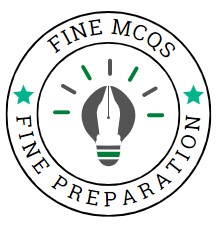21. Chromosomes are:
(a) Present only in the nucleus of a cell
(b) The biggest in number in human cells
(c) Made up of DNA as a main component
(d) Visible in all cells at every time
22. The part of the cell which is essential for protein synthesis is:
(a) Chloroplast
(b) Ribosomes
(c) Golgi bodies
(d) Chromosomes
23. Short sightedness is due to:
(a) Shifting of the iris
(b) Weaker muscles
(c) Elongation of eye balls
(d) Weakening of the retina
24. There are approximately _______ human body.
(a) 200
(b) 350
(c) 500
(d) 700
25. The organ which destroys worn out RBCs in the body of a vertebrate is:
(a) Pancreas
(b) Liver
(c) Bone marrow
(d) Spleen
26. The saliva helps in the digestion of:
(a) Proteins
(b) Fats
(c) Fibres
(d) Starch
27. Biological death of a patient means death of tissues of the:
(a) Kidney
(b) Heart
(c) Lungs
(d) Brain
28. Which of the following hormones contains iodine?
(a) Adrenaline
(b) Insulin
(c) Testosterone
(d) Thyroxine
29. Respiratory centre is situated in:
(a) Cerebrum
(b) Cerebellum
(c) Medulla oblongata
(d) Diencephalon
30. For transfusion, the ‘O’ blood group of a donor can be accepted by a person having blood group:
(a) A
(b) B
(c) AB
(d) All of these

